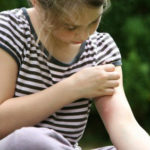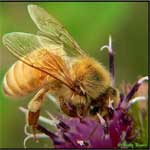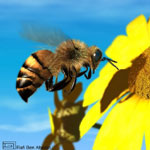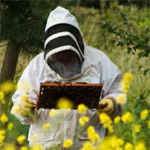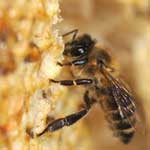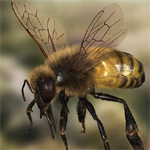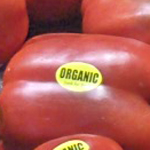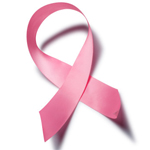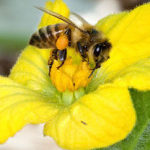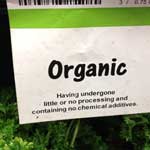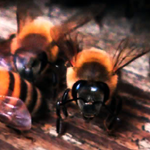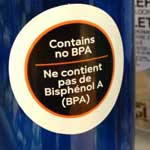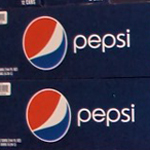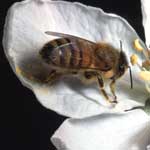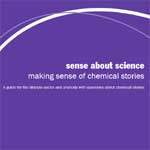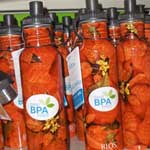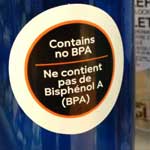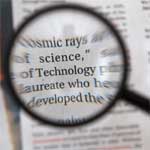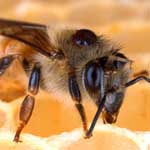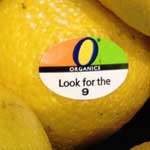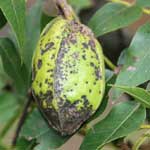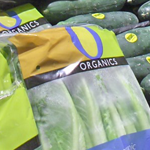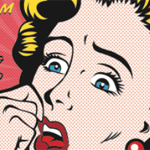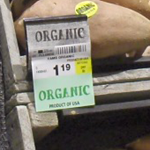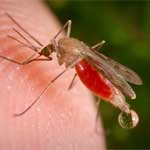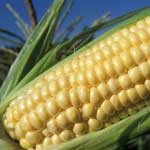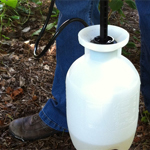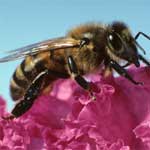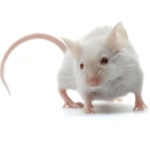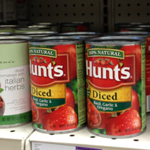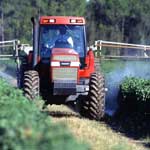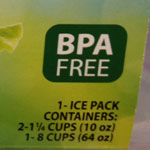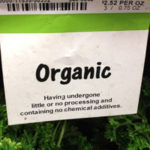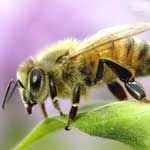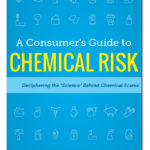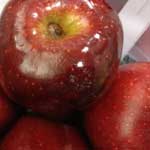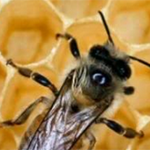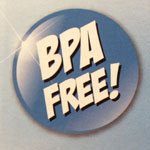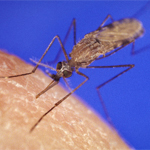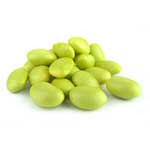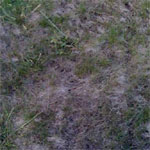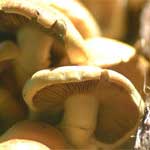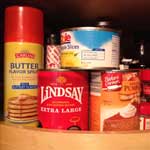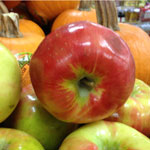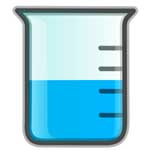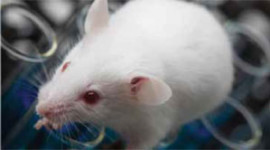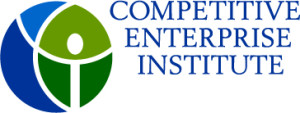"Debunked: Five Chemical Misconceptions, by American Council on Science and Health." Chemicals pervade all aspects of our daily lives — independent of the setting. Whether you are a city dweller or reside in a rural area, synthetic (as well as natural) chemicals encompass and sustain everyday life. Mark Lorch, senior lecturer in biological chemistry at the University of Hull emphasizes the impossibility of leading a chemical-free life as he debunks five common myths popularized by media and … [Read more...]
Pesticides and the West Nile Virus
"Killer sand, WMD Insect Spray, and other Idiocy," by American Council on Science and Health. Last year we at ACSH were instrumental in getting the village of Ocean Beach, located on Long Island, to overturn its decades-old chemophobic policy of refusing to participate in the mosquito control program that was routinely used in most of Long Island, as well as wide areas of New York City. We were prompted to do so after ACSH friend Jim Capuono—a six year survivor of colon cancer—nearly died from … [Read more...]
EU Stops Unscientific Ban on Phthalates
"Phthalates Given a Reprieve by the EU — Surprisingly, Given European Devotion to the Precautionary Principle," by American Council on Science and Health. Plastics! Nothing to Fear...In a surprisingly pro-science stance, the European Commission has swatted away a rebellion by the Danish environmental authorities to race ahead of the science and institute a ban on 4 types of phthalates. These plasticizer chemicals have been targeted by many “environmental” and “consumer” NGOs over the past 15 … [Read more...]
Few Docs Express Concern about “Chemicals” to Expecting Moms
"Survey of Ob. Docs Fails to Find Many Who Discuss “Chemicals” with Moms-To-Be, by American Council on Science and Health. A survey sent to thousands of regional Ob-Gyns by a group from the Dept. of Obstetrics and Gynecology at the University of California-San Francisco revealed an intense lack of concern among those specialists about environmental chemicals as impacting their pregnant patients. The authors, led by Dr. Naomi E. Stotland, sent out a 64-question survey to over 20,000 California … [Read more...]
Science Not Politics to Help Honeybees
"Beekeepers/Farmers Need Answers, not Giant Inflatable Bees," By Elton Robinson. Protestors insisted that Loews remove neonicotinoid insecticides from its shelves. But the protestors once again cited poorly-constructed research about the insecticide's role in bee health. Last month, members of group called SumOfUs.org, sporting a giant inflatable bee, organized a protest at a Lowe’s shareholder meeting, insisting that the corporation “remove bee-killing neonicotinoid insecticides from its … [Read more...]
Lawmakers Speak Out on Honeybee Issue
"Cutting Through the Buzz: Pollinator Numbers Are Up," By Reps. Tom Rooney and David Valadao. For some time now, the media has been issuing dire warnings of the coming “bee- pocalypse.” Time magazine ran a cover story titled, “A World Without Bees.” A headline in the London Telegraph proclaimed “Honey bees in US facing extinction.” CBS warned of the drastic threat to our food supply if these essential pollinators are lost. Yet reports of bees’ catastrophic demise are greatly exaggerated. … [Read more...]
A Plan for Saving the Honeybees?
"Can Obama Save the Honey Bees?," by David Clark Scott. Who could be against saving the honey bees? For politicians, this is what's called an "Apple Pie" issue. And who pollinates the apple trees? On Friday, Obama signed a presidential memo ordering the federal government to come up with a plan for protecting pollinators such as honey bees, butterflies, birds and bats. "The problem is serious and requires immediate attention to ensure the sustainability of our food production systems, avoid … [Read more...]
Bee-S Beepocalypse
"Bee-S Beepocalypse - Don't Make The Perfect The Enemy Of The Good," by Hank Campbell. Generally speaking, when a politician goes on television and says he is creating a special task force to look at a product, you know what happened; someone wrote about it in the New York Times and someone did a poll and someone else told him it would look presidential to be bold. And then someone in the environmental movement will invoke DDT. Really, the EPA was not created 40 years ago to protect us from … [Read more...]
Honeybee Science
"Activists Declare The Science Settled - Neonicotinoids Are Killing Bees," By Hank Campbell. Want to scare people about a pesticide? Compare it to DDT. 40+ years after it was banned in a bit of scientization of politics, people have still heard of it. DDT may be the only pesticide many people have ever heard of. Environmental groups love to invoke it for that reason. But if you are a fan of science, when you see a DDT comparison, you know evidence has left the building. DDT, when misapplied, … [Read more...]
Pesticides and Autism Link?
"UC-Davis Group Links Pesticides to Autism — Without Measuring Pesticides. What?," by American Council on Science and Health. There they go again: a group of “academics” long-devoted to finding pesticide toxicity by any means necessary has accomplished their goal! What goal, you ask? They have attained a vast amount of media attention (sure, mostly in the “enviro-blogosphere,” but many mainstream folks have swallowed this whole as well, thanks to the PR folks at UC-Davis and that font of … [Read more...]
Closing the Shower Curtain on Obsesity Claims
"Shower Curtains Don't Make You Fat," by Julie Gunlock. Ladies, if you’re currently flooding your bathroom each morning because you decided to toss your shower curtain due to some hysterical article you read (and sadly, believed) about shower curtains making people fat, stop what you’re doing. Save your floor grout and reattach that shower curtain. Your shower curtain is guilty of no such sin! Read more. … [Read more...]
Blaming Shower Curtains for Obesity
"Do We Really Have to Worry About Shower Curtains Causing Weight Gain?" by Geoffrey Kabat, Stats.org. Several days ago an article titled “Is Your Shower Curtain Making You Fat?” appeared in the magazine Spry and was then reprinted in the Dodge City Daily Globe. The article drew readers’ attention to the dangers of endocrine disrupting chemicals (EDCs), giving 5 examples of chemicals used in everyday consumer products (BPA, phthalates, PVC, PFC’s, and PBDFs). With a quote from a professor of … [Read more...]
Organic Labeling Double Standard
"Organic Lobbyists Petition To Prevent USDA From Having Organic Food Oversight," By Hank Campbell. Since 1990 organic food has been allowed to exist independently of the U.S. Department of Agriculture (USDA), the one federal agency responsible for food safety and quality. Sure, organic food still gets recalls, lots of them - using feces as fertilizer and having customers who think food doesn't need to be washed will do that - but the definition of 'organic' is not determined by the USDA. Those … [Read more...]
Infectious and Unscientific Attack on Antibacterial Soap
"Green Group's Unscientific Attack on Soap," By Erik Telford. The Food and Drug Administration (FDA) is tasked with promoting public health by ensuring the safety and efficacy of medicines and consumer products. But like most federal bureaucracies under the Obama administration, it has allowed its regulatory agenda to be influenced by activist groups. The FDA’s latest target is, of all things, antibacterial soaps, which fringe activists believe pose a variety of health and environmental … [Read more...]
Greens Admit: BPA Does Not Cause Breast Cancer
"BPA A Concern For Breast Cancer? Not According To Study By Leading Environmental Group," by Trevor Butterworth, Stats.org. A massive synthesis of data from the National Toxicology Program and consensus reports from international cancer authorities has identified 102 chemicals as critical for breast cancer research and prevention. The list, compiled by researchers from the Silent Spring Institute and the Harvard School of Public Health, is derived from studies of chemical exposures and mammary … [Read more...]
Ban Threatens Honeybees and Farming
"There is No ‘Bee Armageddon’: Misguided Neonics Ban Threatens Honeybees and Farming," byJon Entine, Stats.org. Science can’t be rushed. Usually legislators make policy decisions on controversial issues only after carefully weighing current research. But just the opposite has unfolded in the EU. European Commissioners last year passed a two-year ban on a class of pesticides known as neonicotinoids in a preemptive move to protect honeybees, after sketchy reports of higher-than-normal winter … [Read more...]
Honeybee Health and Headlines
"Good News and Bad News about Honeybees," By Angela Logomasini. News stories related to honeybee health the past few weeks are all over the map. Some headlines claim that new research proves that honeybees are dying off because of pesticides, while others say honeybees are doing just fine. But reality is different than either scenario. Beekeepers surely have their challenges, but banning pesticide's won't help them or their bees. Much of the media "bad news" comes from a recent Harvard … [Read more...]
Pesticides Used on Organic Food
"The Biggest Myth About Organic Farming," By Ross Pomeroy. The majority of Americans believe that organic foods are healthier than food grown using conventional methods. The majority of Americans are wrong. Two systematic reviews, one from Stanford University and the other by a team of researchers based out of the United Kingdom, turned up no evidence that organic foods are more nutritious or lead to better health-related outcomes for consumers. But the idea that organic foods are healthier … [Read more...]
Regulators More Dangerous than Pesticides
"Killer Regulators Are More Dangerous To Bees Than Neonics Are," By Hank Campbell. At a time when the EPA is rushing to place new regulations on the one thing that is still cheap and increasingly environmentally effective in America, energy, it may seem strange to laud the EPA. But career scientists do solid work there. I made that point in a comment about Rachel Carson and "Silent Spring" recently. While the book was not very solid scientifically it was certainly effective culturally. Every … [Read more...]
BPA Politics
"Politicizing Livers: No, We Are Not Kidding," by American Council on Science and Health. An op-ed by Merrill Matthews in Investors.com, the online blog of Investors Business Daily would seem to say no. The piece entitled Left Wants EPA To Ban Chemical FDA Says Isn’t Harmful describes how a common and harmless chemical—bisphenol A, aka BPA— has turned into a political rallying point for groups that have nothing better to do than to try to ban it. They may be misguided, but at least you have … [Read more...]
Flame Retardants in Soft Drinks Less Risky than Water
"Inflamed Debate Over a Soda Additive," By Angela Logomasini. A recent announcement by Coca-Cola and PepsiCo that these companies are pulling the ingredient brominated vegetable oil (BVO) out of their soft drinks is no big surprise. It’s yet another example of how junk science and media hype forces needless product reformulations. While such actions don’t make us safer or healthier, they promise to make us poorer. This case started with a 2013 petition on Change.org, pushed by a … [Read more...]
Bee Busybodies Rebuked
"Bad News for Bee Busybodies," Washington Times Editorial. The hardy honeybees are back, having returned from dark and mysterious places in the imaginations of the environmentalists. The latest numbers from the Agriculture Department are a stinging rebuke to the doomsayers who spread hysterical tales of a mysterious apocalypse of beedom. In the latest annual survey, federal bee counters reported the lowest rate of over-the-winter bee losses in nearly a decade. Beekeepers call a loss of 19 … [Read more...]
Chemical Scare Stories Debunked
"Popular Chemical Misconceptions Debunked," By American Council on Science and Health. Our environment is a mosaic of chemicals that add to our everyday living. Despite their ubiquitous presence and essential role in society, chemicals continue to be vilified by the media and interest groups. Making Sense of Chemical Stories is a consumer friendly 16-page guide stripping the negative impressions surrounding chemicals and their relationship to human health and the environment as a whole. The … [Read more...]
FDA: BPA Dose is Too Low to Have Health Effects
"FDA: No Low-Dose Chemical Dangers," by Dennis Avery. The Food and Drug Administration has just loudly re-endorsed perhaps the oldest truth in science—that the dose makes the poison. Paracelsus, the father of toxicology, told us 500 years ago, “All substances are poison. There is none which is not a poison. The right dose makes the difference between a poison and a remedy.” Even sunlight and water are poisons at high doses. The FDA has just commented on a new study which found no health impact … [Read more...]
Green Calls for BPA Ban Unwarranted
"Left Wants EPA To Ban Chemical FDA Says Isn't Harmful," By Merrill Mathews. President Ronald Reagan famously asserted, "The nearest thing to eternal life we will ever see on this earth is a government program." He might have added that the second nearest thing is a completely discredited left-wing cause. Exhibit A: Since the left can't convince the U.S. Food and Drug Administration to outlaw the chemical BPA, it wants the Environmental Protection Agency to take over. Bisphenol-A (BPA) is … [Read more...]
Friends of the Earth’s Phony Science
"Espousing Phony Science? You Better Hope Hank Campbell Doesn’t Find Out," By American Council on Science and Health. ACSH friend (and the creator of the enormously popular Science 2.0 website) has the uncanny ability to sniff out bad (and hypocritical) science, and when he does, he is not shy about speaking his mind. This time he goes after the radical environmental group Friends of the Earth, and by the time they read his piece they will not be “Friends of Hank.” His message is about the … [Read more...]
Tackling Anti-Chemical, Unscientific Nonsense
"Manmade or Natural, Tasty or Toxic, They're All Chemicals …" by Mark Lorch. Chemicals are bad, right? Otherwise why would so many purveyors of all things healthy proudly proclaim their products to be "chemical-free" and why would phrases such as "it's chock full of chemicals" be so commonly used to imply something is unnatural and therefore inherently dangerous? On one level these phrases are meaningless – after all, chemicals are everywhere, in everything. From the air that we breathe to the … [Read more...]
Improving Honeybee Health
"Nationwide Survey Shows Dramatic Improvement in Honeybee Health," by Todd Myers. During the last week, there has been a great deal of attention to a study claiming pesticides are responsible for an increase in honeybee hive death. Known as Colony Collapse Disorder (CCD), beekeepers and scientists have been working to find out what is to blame for the trend. What has been ignored, however, is recent good news about CCD. A recent study by Bee Informed, a nationwide survey of beekeepers, the … [Read more...]
Too Strictly Organic?
"To “Be” or “Not to Be” Organic?" by Dan Janzen. The virtues of many aspects of the Organic Movement such as heightened concern for healthy eating, and increased sensitivity or aversion to exposure to toxins in the environment can be touted as very positive. However, to fully explore the impact of all aspects of the Organic Movement there are some important questions to consider. (1)Is it possible to cross the line in Organic Movement initiatives and “throw out the baby with the bathwater”, … [Read more...]
Making Sense of Chemical Stories
"Making Sense of Chemical Stories," by Sense About Science. The new edition of our public guide, Making Sense of Chemical Stories, was published by Sense About Science today with support from Royal Society of Chemistry. People are still being misled by chemical myths. This needs to stop. We urge everyone to stop repeating misconceptions about chemicals. The presence of a chemical isn’t a reason for alarm. The effect of a chemical depends on the dose. In lifestyle commentary, chemicals are … [Read more...]
Toll of Organic Farming
"The Hidden Cost of Organic Farming," By Dan Janzen. I was prompted to begin blogging upon my return from three and a half months of agricultural development work among the Nasa and Guambiano Native Americans in Cauca Department of Colombia. People were giving them books to read promoting 100% organic methods with all kinds of information which, in my opinion, was grossly misrepresenting the facts. Many different organizations including ones from the government were promoting 100% organic … [Read more...]
Unsustainable Organic Farming
"Organic Farming Is Not Sustainable," Henry I. Miller. You may have noticed that the organic section of your local supermarket is growing. Advocates tout organic-food production—in everything from milk and coffee to meat and vegetables—as a "sustainable" way to feed the planet's expanding population. The Worldwatch Institute, a Washington, D.C.-based environmental group, goes so far as to say organic farming "has the potential to contribute to sustainable food security by improving nutrition … [Read more...]
Misleading Organic Marketing
"Organic Marketing: Not Truthful, Often Misleading," By John R. Block. As someone who has dedicated his career to agriculture, I’ve often wondered what drives the now double-digit growth in the $35 billion U.S. organic products industry. Why are so many people willing to pay premiums up to 100 percent or more for items that carry an organic label, and do they really understand what that label means and — even more important — what it doesn’t mean? Many of these questions have now been answered … [Read more...]
“Pesticide-Free” Claim Debunked
"Organic ‘Pesticide-Free,’ and Other Claims Debunked," by American Council on Science and Health. Now that the claim that organic foods are more nutritious than conventionally-produced ones is rarely espoused by responsible writers, organic producers and adherents have fallen back on the “fewer pesticides” claim. But is that really accurate? Blogger Steven Savage says no, not really. In his essay on why organic farming is less than optimal from an environmental point of view, Mr. Savage points … [Read more...]
Fearmongering on Chemicals and Male Fertility
"Can Chemicals Slow Sperm — Need We Worry?" By American Council on Science and Health. spermA recent study published in EMBO Reports provides the latest fuel for fear-mongering about chemicals. Dr. Christian Schiffer of the Center of Advanced European Studies and Research in Bonn, Germany and colleagues tested 96 different chemicals found in many household products, foods, and personal care products to see what effect they might have on human sperm. The impetus for this research was the theory … [Read more...]
Interview with Julie Gunlock
"New: Author Interview with Julie Gunlock," by Alyssa Condrey Julie Gunlock is director of the Culture of Alarmism project at the Independent Women’s Forum (IWF) and author of a recent book, From Cupcakes to Chemicals. Ms. Gunlock was gracious enough to answer a few questions for NeW about her new book, discuss the conservative movement, and offer up advice for conservative women. Read her interview below! What initially prompted you to research and write about the culture of alarmism? Read … [Read more...]
Organic and “Pesticide Free” Not the Same
"Spending More For Organic Does Not Buy You Pesticide-Free," By Steve Savage. There are several different reasons people are willing to pay more for organic produce, but many consumers do so believing that it is a way avoid pesticide residues. That widely held belief is unfounded. Here is why: There are definitely pesticides used in the growing of organic crops. There are residues of those materials on the harvested products. Residues of synthetic pesticides are also frequently found on … [Read more...]
Endocrine Disrupters in Your Backyard?
"The Newest 'Endocrine-Disruptor' Can Be Found in Your Backyard, Claims a NY Times Op-ed," by American Council on Science and Health. It’s starting to feel a little bit like summer on the East coast now, which means people are clean up their yards and gardens. And that means using “chemicals”, which according to an op-ed by physician Diane Lewismay in the NY Times, can end up in drinking water. Is that true? And if so, are these chemicals (generally pesticides and weed-killing herbicides) … [Read more...]
DDT and Malaria
"DDT Research is “Biased and Erroneous” If You’re Gonna Screw Up, You Might As Well Do It Really Well," by American Council on Science and Health. Screen Shot 2014-05-09 at 1.58.22 PMIf there is a more obvious case of bad science, and its impact on human health, we’d like to see it. Because it turns out that DDT, the evil chemical blamed by Rachel Carson in her 1962 book Silent Spring for thinning of bird eggs, does no such thing. And the consequences of this “error” are tragic—one million … [Read more...]
Feeding the World with the Help of Herbicides
“'Atrazine and The Forever War on Science' Makes for Scary yet Incisive Reading," by American Council on Science and Health. In a brilliantly-written perspective piece on his Science 2.0 blog, Hank Campbell skewers a lot of folks who really need skewering. His scythe and rapier draw blood from his targets, and his insights accrue to the reader: the rampant chemophobia pervasive in America, where “chemicals” are feared when they are recognized at all; the pandering of pseudo-journalists giving a … [Read more...]
Anti-Pesticide Attack on Science
"Atrazine And The Forever War On Science," By Hank Campbell. I'll tell you up front, I am not a big fan of chemicals. It's not that I have chemophobia, or any science-phobia, I instead have that special sort of elitism that is available to people who have just been lucky enough to not need chemicals. I don't even like to take aspirin and I have that luxury because I haven't needed to take any drugs for a recurring condition, so it's really easy for me to embrace such naturalistic posturing. … [Read more...]
Rash Regulation May Harm Honeybee
"Regulate-First-Think-Later Approach to Harm Honeybees," by Angela Logomasini. European bureaucrats placed a two-year ban on a class of pesticides in the name of “protecting honeybees” when in fact, as one EU official recently admitted, they didn’t have evidence that the chemicals present a serious threat to honeybee health. According to an article in Food Chemical News, the European Commission official admitted that the government banned the chemicals simply because it was “the only factor” … [Read more...]
Growers Call for Science-based Approaches to Help Honeybee
"Growers say Pesticide Ban Won’t Solve Bee Problems," Eric Mortenson. The Oregon Association of Nurseries urges Congress to use a collaborative and scientific approach to regulating pesticides that some blame for honeybee deaths. Instead of banning the neonicotinoid class of pesticides, Congress should follow Oregon’s example and use a collaborative and science-based approach to improving honeybee health, the executive director of the Oregon Association of Nurseries said. OAN director Jeff … [Read more...]
Rodent Tests Don’t Justify Proposition 65 Listing
"DINP’s Placement on Prop 65 List is not Warranted," By American Council on Science and Health. Diisononyl Phthalate (DINP) was added to California’s ever-growing Proposition 65 list of “known carcinogens” late last year. However, Elissa Sterry, VP for ExxonMobil’s Intermediates Global Business, told the Consumer Products Safety Commission that the rodent studies upon which this decision was based were essentially meaningless. She says, “the relevant mechanisms of cancer development are not the … [Read more...]
Butterworth On Target Regarding BPA Research
"Trevor Butterworth and (butter)worthless claims about BPA," By American Council on Science and Health. The always dead-on Trevor Butterworth once again hit the bullseye in his op-ed in Forbes.com. And in his unique way, he makes the perennial critics of BPA—a component of the plastic that seals canned foods—look rather foolish. ACSH’s Dr. Josh Bloom is in complete agreement: “After reading this piece, it would seem rather obvious that the dozens of studies and papers on the ‘health effects’ … [Read more...]
BPA-Levels in Food Cans
"Canadian Government Study: Death From Overeating Before Any Risk From BPA," By Trevor Butterworth, STATS.org. The Canadian government, which helped to trigger worldwide fears about the effects of trace amounts of BPA in food by using the precautionary principle to guide risk management, continues to produce studies showing that precautionary thinking is wildly off the mark on BPA. The latest study on BPA sampled 403 domestic and imported cans containing fruit, vegetables, juices, other … [Read more...]
Questionable Study on Children and Pesticides
"For the Record: 'Children in agricultural areas are being exposed to a dangerous cocktail of pesticides,'" By Sense About Science. An article in the Guardian, 29th April 2014 reported that “Children in agricultural areas are being exposed to a dangerous cocktail of pesticides”. It referred to a report published by Générations Futures, a French health and environment group. Dr Paul Illing, a recently retired registered toxicologist and regulatory affairs consultant explains this is not what the … [Read more...]
Moms Need Not Fear BPA
"Despite Scare Stories, Fears about BPA are Unnecessary," By Cherylyn Harley LeBon. As soon as someone mentions BPA (bisphenol A), I recall the glasses and glass containers our family now uses to replace the plastic containers that previously populated our cupboards. Like many moms, my top priority is keeping my kids safe, so I was concerned about BPA in the past. When the media began reporting BPA might be toxic, we replaced the plastic products and other things in our home thought to contain … [Read more...]
World Malaria Day
"World Malaria Day: April 25, 2014," by American Council on Science and Health. Today marks the 8th annual official recognition, via World Malaria Day, of the horrendous toll taken by the mosquito-born infection. ... Read more. Watch the Video: … [Read more...]
Organic Mommy Mob
"The Beliefs of the ‘Organic Mommy Mafia’ Are on Trial," by American Council on Science and Health. “‘Am I going to be an outcast?’ A friend, who recently moved to an upscale neighborhood in Madison, Wis., called me last week to ask if she would be able to make mommy friends if she continued feeding her children — gasp! — non-organic food.” This is how Naomi Schaefer Riley begins her piece in the New York Post, in which she very accurately describes the emergence of a group of parents called … [Read more...]
Organic Mom Mafia Revisited
"More on the Organic Mom Mafia," by Julie Gunlock. As Charlotte mentioned in her post yesterday, Naomi Schaefer Riley’s excellent piece in the New York Post exposes a new type of helicopter parent—the type that has to hover not only over their own child’s plate of food but over your child’s plate as well. Some of these women are indeed insufferable and judgmental and nervous wrecks and they about as much fun as a trip to the dentist, but there’s another group of women who, while also woefully … [Read more...]
Organic Mom Mafia
"Meet the Organic Mom Mafia," Charlotte Hays. Naomi Schaeffer Riley had an excellent column yesterday on “the tyranny of the organic mom mafia.” “Am I going to be an outcast?” a friend who feeds her kids—gasp—non-organic food asks Schaeffer Riley. Riley quoted IWF’s own Julie Gunlock as a proponent of food sanity: Read more. … [Read more...]
Dirty Truth About Organic Produce
"Let Facts, Not Fear, Guide Healthy Food Choices," By SaferFruitsandVeggies.com. There are decades of nutritional studies that clearly show that consumption of fruits and vegetables improves health and leads to a longer life – these studies were largely conducted using conventionally grown produce. And, there is an impressive body of work by the government plus peer reviewed science that shows that residues, if they are present at all, do not pose a food safety concern. Yet certain activist … [Read more...]
Earth Day Chemistry Lessons
"This Earth Day, Thank A Chemist," By Hank Campbell. Earth Day is fast approaching and, let's face it, if you celebrate Earth Day you probably hate science. And you really hate chemists. But there has never been a reason for it, it is simply modern chemophobia. If you ask an environmentalist if they should use a chemical solvent or baking soda to clean, they will say baking soda - but baking soda is a toxic synthetic chemical (NaHCO3) unless it is used properly, where it is harmless and … [Read more...]
Findings of Honeybee Health Study Encouraging
"Encouraging News about Honeybee Health," By Angela Logomasini. A recently released study in Europe reports some good news about honeybee health, which should prompt public officials to reexamine a recent ban on some agricultural products. “It’s the first major study of pests and diseases that affect honeybees. A lot of it seems very encouraging,” honeybee researcher Tom Breeze, says in a Reuters news story. The study examines honeybee populations in Europe after recent disappearances of entire … [Read more...]
Junk Science on Glyphosate and (Roundup) Health Risks
"Debunking Pseudo Science “Lab Testing” Health Risk Claims about Glyphosate (Roundup)," by Academics Review. On April 7, 2014 a television “documentary” in Australia reported that a study of 10 nursing mother’s milk revealed the presence of glyphosate. This report referenced claims announced made by a “study” commissioned by anti-GMO activist group Moms Across America with “Sustainable Pulse,” an online “news service” published by anti-GMO campaigner and organic food entrepreneur Henry … [Read more...]
More Chemical Scares
"It’s Whacko Wednesday: Two More Asinine Chemical Scares," by American Council on Science and Health. Screen Shot 2014-04-09 at 1.05.06 PMAt ACSH we shout a lot. Sometimes even at each other. But most of the time it takes the form of shoutouts to like-minded writers and websites (and there aren’t that many) that believe that real science, not agenda-driven nonsense, should actually be used to guide public health policy. Today’s shoutout #1 goes to the prolific (and brilliant) Trevor … [Read more...]
BPA Alarmism and Mother Jones’ “Expose”
"BPA: The Scientists, The Scare, The 100-Million Dollar Surge," by Trevor Butterworth. Conspiracy, incompetence, a federal agency out of control. A recent Mother Jones story by Mariah Blake indicts the Food and Drug Administration (FDA) as a threat to science and public health over the way it’s conducting research into bisphenol A (BPA), the never-ending chemical scare story of the 21st century. Raise the alarm (again), stir the pot (again), marshal outrage (again). And, if you have no other … [Read more...]
Consumers Misinformed About Organic Food
"Why Consumers Pay More for Organic Foods? Fear Sells and Marketers Know it," by Academics Review. An extensive review of more than 200 published academic, industry and government research reports into why consumers adopt organic product purchasing behaviors was conducted by Academics Review – a non-profit led by independent academic experts in agriculture and food sciences. This review was then supplemented with an assessment of more than 1,000 news reports, 500 website and social media … [Read more...]
Consumers’ Guide to Chemical Risk
"Science Facts and Chemical Scares," By Angela Logomasini. Will these chemicals make me fat? That sounds like a weird question, but some consumers may actually have such worries, thanks to a constant barrage of news headlines suggesting that synthetic chemicals—an even some naturally occurring ones—are responsible for nearly every public health problem imaginable. This website and CEI‘s A Consumers Guide to Chemical Risk: Deciphering the “Science” Behind Chemical Scares booklet are designed … [Read more...]
Pesticides Vital to Food Production in India
"Debunking the Myths on Pesticides is Vital to Raise Food Production in India," By Rajju D Shroff. It is an unsupported claim commonly accepted that all pesticides are unsafe, both for crops and human health. In recent years, studies have highlighted the toxic effects of pesticides, especially in the long run. Most attacks have come from selfacclaimed environmentalists and some environmental NGOs, without enough research to even corroborate their findings. A major concern put forth by such … [Read more...]
Ignore Greens’ Dirty Politics
"Don't Let Annual List Release Put a Damper On Spring," by SafeFruitsandVeggies.com. It’s April now, spring is here which means an even bigger variety of healthy and safe fruit and veggies will be available to consumers at restaurants, grocery stores and farmers’ markets. But before consumers can get too excited, they’ll be greeted this month with the annual release of the “dirty dozen” list which inaccurately calls into question the safety of fruits and vegetables most popular among American … [Read more...]
Organic Food & Cancer Risk
"Organic Food Does Not Reduce Cancer Risk," By Hank Campbell. Organic food has built a lot of mythology around its process - more ethical, more nutritional, fewer pesticides, a larger penis for the sons of organic shoppers - but one claim was a puzzler only subscribed to by the kind of people who buy homeopathy and healing crystals; that eating organic might reduce the risk of cancer. The premise is logical, at least for organic shoppers, if only adjacently valid scientifically. Poor diet has … [Read more...]
Fishy “Link”: Glyphosate and Celiac
"A Fishy Attempt To Link Glyphosate And Celiac Disease," By Steve Savage. Stephanie Seneff (a computer scientist at MIT), and Anthony Samsel (a retired consultant), have recently been attempting to link the use of the herbicide glyphosate to a long list of modern maladies. Their latest such attempt to is Celiac disease. The overall argument for the glyphosate/Celiac link has already been quite thoroughly debunked by a Celiac expert, but there is one other good reason to dismiss the "link" which … [Read more...]
Triclosan’s Dental Benefits
"Triclosan: The Good, the Bad, and the Ugly," By Maria Perno Goldie, RDH, MS. There has been much chatter lately on social media regarding triclosan, and products containing triclosan. Allegations are being made that products contacting triclosan are being banned in certain countries and that it is an unsafe addition to oral care and other products. The “ugly” is that many of these accusations are unfounded and not based in science, and can blur the lines between personal preference and … [Read more...]
More NYT Alarmism About Plastics
"It Never Stops. Monday: Phthalates, Tuesday: BPA, Wednesday: Phthalates, Thursday: BPA, Friday: Phthalates …." by American Council on Science and Health. It’s a good thing there aren’t more days in the week, cause this could get awfully tiresome. But on March 21st (a Friday) those of us who were unfortunate enough to stumble upon Deborah Blum’s piece “A Plastic Threat to Male Fertility” were treated to a world-classless tutorial on (of course) phthalates—which come across as one of the most … [Read more...]
Eating Organic Has No Effect on Cancer Risk
"A New Study Has Found that Eating an Organic Diet Does Not Reduce the Risk of Cancer," by CBS Atlanta. Researchers monitored the health of 600,000 women aged 50 or older for nine years asking whether they ate pesticide-free organic food. Roughly 50,000 of the women developed one of the 16 most common cancers during the study period in total. No difference in overall cancer risk was found between a comparison of 45,000 women who “always” or “usually” chose organic food and 180 women who never … [Read more...]
Anti-BPA Bill to Harm Taxpayers
"BPA Threats Unsubstantiated; Bill Could Hurt Taxpayers," by Mattie Duppler. Over a century ago, Gov. Robert “Fighting Bob” La Follette Sr. advocated what would become to be known as the Wisconsin Idea, a principle that an effective government is a responsive government. Today, lawmakers in Madison are beginning to neglect this compact, pursuing a political agenda that ignores informed debate and the well-being of their constituents. Rep. Chris Taylor, D-Madison, has introduced Assembly Bill … [Read more...]
Beekeeper: Alliance with Greens is Counter-Productive
"Beekeeper Speaks Out Against Anti-Pesticide Campaigns," By Angela Logomasini. Anyone worried about honey bee survival should read the piece by Canadian beekeeper Lee Townsend in the Guelph Mercury newspaper. In recent years, beekeepers have seen some of their hives disappear without much explanation, a phenomenon referred to as”colony collapse disorder.” Green activists have used this situation to randomly initiate bans on various pesticide products in the name of saving the bees, and their … [Read more...]
Misinformation about Triclosan
"Editorial Counterpoint: Misinformation Fuels Fears about Triclosan," By Paul Deleo. The Star Tribune’s March 11 editorial supporting state legislation to ban the ingredient triclosan — found in a number of antibacterial soaps and body washes — contributes to a parade of misinformation and distortion that we have sadly seen in Minnesota as of late. Triclosan is the most reviewed and researched active ingredient used in antibacterial soaps and body washes. Antibacterial wash products with … [Read more...]
Pesticide Regulation Means Less Wheat to Feed World Population
"Curbing Pesticides Will Slash Wheat Yields," By AFP. France’s winter wheat harvest could shrink by over a tenth if farmers meet targets to halve pesticide use, said a study Thursday highlighting the challenge of feeding Earth’s growing population. The estimates come from field trials where scientists compared yields to cuts in pesticide use. Extrapolated for the country as a whole, halving pesticide use could mean a decline in winter wheat production of two to three million tonnes per year, … [Read more...]
New Yorker’s Attack on Science
"Turning Science into a Circus: The New Yorker, Rachel Aviv and Tyrone Hayes," By Bruce Chassy, Ph.D. Titled “A Valuable Reputation,” it purports to tell the story of Berkeley researcher Dr. Tyrone Hayes and how, after he supposedly revealed the harmful effects of a popular herbicide on frog development, the chemical’s maker attempted to discredit him. In subsequent statements by the author and other articles, this has morphed into allegations of a full-fledged corporate conspiracy one … [Read more...]
Beekeeper Says: Alliance with Greens is a Mistake
"Canada’s Bees are Thriving: Public Needs Facts, not Fear," By Lee Townsend. News outlets throughout Canada are filled with stories about the imminent decline of honeybees and the calls by some beekeepers to ban the pesticides — called neonicotinoids — which they blame for their problems. As a commercial beekeeper, I have a couple of points to make that may surprise some readers. First, the Canadian honeybee industry is far from collapsing — in fact, it's thriving. The numbers don't lie. Both … [Read more...]
Questionable Claims About Pesticides and Health
"No, Pesticides Did Not Give Your Child A Tiny Penis - Or Autism," By Hank Campbell. In mainstream media, everywhere from Fox News to Time (and here on Science 2.0, though with a little more skepticism) a bizarre study is all the rage - pesticides and other environmental toxins will give your kid a malformed penis and cause autism. And state regulations...prevent it. This overturns all of epidemiology, right? Now something has to be done. Autism causes might be okay to debate in a reasoned … [Read more...]
Chemicals & Obesity
"Does BPA Make You Fat?" By Steve Hentges. As with most questions related to the common chemical bisphenol A (BPA), the answer to that question may depend on who you ask. The question is a particularly relevant one in recent years with the advent of the “environmental obesogen” hypothesis, which refers to “…chemicals that inappropriately alter lipidhomeostasis and fat storage, metabolic setpoints, energy balance, or the regulation of appetite and satiety to promote fat accumulation and … [Read more...]
Autism and Environmental Toxins
"Just When You Think Science Can’t Get Any Junkier, This Comes Along," by American Council on Science and Health. We at ACSH are sure that you have heard us comment repeatedly that nothing surprises us anymore, because we’ve already heard it all. Yet, we must once again eat crow, because we STILL can’t get this right. Just when we think (or are maybe even sure) we’ve seen it all, it turns out we haven’t. Not even close this time. Today’s “How in god’s name can you publish this and keep a … [Read more...]
Anti-Public Health: Green Agendas
"Essay Attacks “Environmentalists” for Anti-Public-Health Agendas," By American Council on Science and Health. Richard Tren has long been well-known as a fervent proponent of the more widespread use of public-health insecticides, especially DDT, to prevent the scourge of malaria in Africa. He co-founded “Africa Fighting Malaria,” and co-authored several tomes and articles on this subject. His current op-ed in Forbes.com, “Anti-Science Environmentalists Ban ‘Neonic’ Insecticides, Imperiling … [Read more...]
Anti-Science Attacks on Public Health and Pesticides
"Anti-Science Environmentalists Ban 'Neonic' Insecticides, Imperiling Global Health," By Richard Tren. Some of history’s greatest advances in public health – especially in regions plagued by insect borne diseases – have come from the judicious use of pesticides to kill or repel the insect vector before it can infect human populations. Because the market for public health pesticides is relatively small, however, most of these vital chemistries were developed for larger agricultural uses. … [Read more...]
“Food Babe” Wrong About Chemicals
"The Food Babe Hath Spoken, And Subway Bread Will Still Suck," By Josh Bloom. I would like to nominate Arvind Mahankali to be the next head of the USDA. Why? He is obviously very smart, has an outstanding work ethic, and a superb vocabulary. He may have even reached puberty. And if he hasn’t, give it a year or so. Arvind is 13. But if you are concerned that he may not yet have what it takes to run an agency with a $24 billion budget and the responsibility of protecting us from unsafe foods, … [Read more...]
The New Yorker’s Puff Piece on Tyrone Hayes
"Did The New Yorker Botch Puff Piece On Frog Scientist Tyrone Hayes, Turning Rogue into Beleaguered Hero?" by Jon Entine. Who Is Tyrone Hayes and what’s the real story behind the University of California researcher’s sensational claim that he and his family are targeted victims of Big Ag? According to the amphibian scientist and as echoed in a recent 8,000 word mega-feature in the New Yorker by Rachel Aviv, Hayes is an addled but unfairly attacked whistler-blower, victim of a multi-year long … [Read more...]
FDA Research: BPA is Okay
"BPA Is A-OK, Says FDA," by Henry I. Miller. Many non-scientists are increasingly confused and dismayed by the constantly changing advice that comes from medical, nutritional and other researchers. Some of that confusion is due to the quality of the evidence, which is dependent on a number of factors, while some is due to the very nature of science: We form hypotheses and then perform experiments to test them. As the data accumulate and various hypotheses are rejected, we become more confident … [Read more...]
Book Review: From Cupcakes to Chemicals
"Julie Gunlock' s From Cupcakes to Chemicals," book reviewed Angela Logomasini. “I was going to be an earth mommy — with my baby secured in my organic cotton baby sling, wandering around the farmers market, making friends with the butcher, the baker and the candlestick maker,” says Julie Gunlock in her new book, “From Cupcakes to Chemicals: How the Culture of Alarmism Makes us Afraid of Everything and How to Fight Back.” However, that’s not what happened. Mrs. Gunlock did her homework and … [Read more...]
What’s More “Dangerous”: Soybeans or Plastics?
"Green Hype About Plastics Suggests We Ban Soybeans," Angela Logomasini. Environmental activists are relentless. No matter how bad their science or how weak their claims, they make much ado about nothing using creative spin. The latest attack on bisphenol (BPA) and other chemicals found in plastics offers the perfect example. This attack appeared in Mother Jones magazine as an “exposé” about dangerous chemicals in plastics, titled: “The Scary New Evidence on BPA-Free Plastics.” Supposedly, this … [Read more...]
JAMA Junk Science
"JAMA’s Dangerous Hype: BPA and Cash Register Receipt Research Letter," By Angela Logomasini. This month’s issue of the Journal of the American Medical Association (JAMA) contains a “research letter” on a “study” conducted by researchers at Harvard University that says: "[W]e observed an increase in urinary BPA concentrations after continuously handling receipts for 2 hours without gloves, but no significant increase when using gloves." And given these “findings” the headlines declare that … [Read more...]
Is BPA Safe: FDA Says “Yes”
"The FDA On BPA Safety," By Steve Hentges. In June 2013, the U.S. Food and Drug Administration (FDA) answered the question “Is BPA safe?” with a simple and unambiguous answer – “Yes.” In contrast, countless words have been written over many years suggesting exactly the opposite. To get to that straightforward answer, FDA initiated an in-depth research and testing program on bisphenol A (BPA) about five years ago. Although there is more to come, the 15 studies published so far, most recently … [Read more...]
BPA Isn’t Really Risky
"Maybe BPA Isn't So Bad After All," by Jon Hamilton. The plastic additive has been by environmental advocacy groups. But the chemical had no effect on rats fed thousands of times the amount a typical person ingests, government scientists are in the journal Toxicological Sciences. The results "both support and extend the conclusion from the U.S. Food and Drug Administration that BPA is safe as currently used," says , a research chemist with the FDA's. Scientists agree that in large doses, BPA … [Read more...]
USDA Data Shows Pesticide Residue Insignificant
"Our Farmers Get An A+ For Low Pesticide Residues," By Steve Savage. Last week, the USDA released its annual Pesticide Data Program (PDP) report about pesticide residues on food. This release comes from extensive sampling of crops entering the market during 2012. Here is the official summary statement from the USDA: "The Pesticide Data Program provides reliable data through rigorous sampling that helps assure consumers that the produce they feed their families is safe." And the official … [Read more...]
Meaningless Findings on BPA & Cash Register Receipts
"If You Are Scared Of BPA, JAMA Will Make You Happy," By Hank Campbell. Human exposure to bisphenol A (BPA) has recently been linked to negative health claims, like a decline in reproductive function in adults and stunted neurodevelopment in children, and so people consumed with the 'natural' fallacy have been up in arms about it. It hasn't quite become 'BPA causes autism' hysteria, like they did with vaccines, but it is getting close. Naturally, companies have listened to the nocebo worries of … [Read more...]
School Kids Suffer from Anti-Pesticide Policies
"Consequences of Misguided No-Pesticides-in-Schools Law," By Angela Logomasini. Connecticut lawmakers are considering granting schools an exemption to a dumb state law that bans the use of synthetic pesticides on school properties. WNPRNEWS reports: "For years, towns like Cheshire and Branford have been pesticide-free, treating their municipal fields with only organic products. But some school officials argue if groundskeepers can't use certain EPA-approved synthetic fungicides, herbicides, … [Read more...]
Chemophobia in the Lancet
"Grandjean and Landrigan Strike Again!" by Julie Gunlock. A recent study released by Dr. Philip Landrigan of Mount Sinai School of Medicine and Dr. Philippe Grandjean of the Harvard School of Public Health and published in the March issue of The Lancet claim the presence of certain chemicals in everyday products is doing great harm to the nervous systems of fetuses, infants, toddlers and children. Landrigan and Grandjean explain that chemical exposure is the reason there has been an increase in … [Read more...]
Food Psudoscience
"Whole Foods Sells Psudoscience," By Julie Gunlock. Like a lot of people on a budget, I have a love-hate relationship with Whole Foods. There’s a good reason people call it "whole paycheck" and, while I love the fancy food store, I’m not really interested in spending $3.29 on a can of beans (uh huh...I saw it!). I think I shop at the high-end store the way many others shop there: I do the bulk of my shopping at less expensive grocery stores, leaving a few specialty items for Whole Foods. Read … [Read more...]
Yellow Journalism, PCBs, & Environmental Health Perspectives
"Another Chemical Scare: Yellow Dye this Time. Yawn," by American Council on Science and Health. Public health concern about polychlorinated biphenyls (PCBs) had, we believed, been laid to rest in 1979 when 1976’s Toxic Substance Control Act (TSCA) was used to ban commercial use in manufacturing. Since PCBs do not occur naturally, and remain in the environment for many years, most environmentally detectable sources of PCB have been attributed to “legacy” sources. However, an Environmental … [Read more...]
Myth: Chemicals Affect Sperm Counts
"Stupid story of the day— The War On Men: 10 Ways Masculinity is Under Attack," by American Council on Science and Health. Here we go again. Mixing science with politics. We all know how well that works. Yet, Paul Joseph Watson, writing on Infowars.com manages to do just this—with a side order of chemical scares tossed in, and the result is predicable—a big mess. Watson “identifies” ten ways that men are being emasculated. The first two have to do with the “seismic shift” in the balance between … [Read more...]
Food Packaging Risks are Low
"For the record: 'Chemicals in Food Packaging May Be Health Risk'" By Sense about Science. Articles appeared in the Daily Mirror, the Guardian, the Daily Express and Daily Telegraph today with headlines such as ‘Cancer danger in food packs’ and ‘Chemicals in food packaging may be health risk' based on a comment article published in the Journal of Epidemiology and Community Health. The articles say that hundreds of dangerous chemicals such as formaldehyde and endocrine disruptors are leaching … [Read more...]
Formaldehyde Hype and WVA Chemical Spill
"West Virginia Chemical Spill and Formaldehyde Hype," by Angela Logomasini. In this final post on my series related to the January 9 chemical spill in West Virgina, I address wrongheaded claims that the spill also exposed Charleston residents to dangerous levels of formaldehyde. A few weeks after the spill, West Virginia Environmental Quality Board Vice Chairman Scott Simonton alleged that final traces of crude MCHM are breaking down and exposing residents to dangerous levels of formaldehyde. … [Read more...]
Scientists Say Food Packaging is Safe
"Concerns Over Chemicals in Food Packaging Misplaced, Say Scientists: Journal Article's Warning That Packaging is Significant Source of Chemical Food Contamination is Roundly Rejected," By Sarah Boseley. Concerns about synthetic chemicals in packaging and plastic bottles contaminating food and drink are largely misplaced, scientists have said in response to calls for greater monitoring of the long-term effect on human health. Food packaging is increasingly the subject of suspicion from some … [Read more...]
Autism and Toxic Exposures
"On Autism, Environmental Toxicants, And Bias," by Emily Willingham. Two clinicians who “utilize detoxification methods in their clinical practices” together with a third author have published an epic review in Translational Psychiatry claiming to evaluate the evidence for the involvement of environmental contaminants in autism. While we obviously want to limit contaminant exposure, autism doesn’t emerge here as the reason for doing so. Something that does emerge, however, looks a lot like … [Read more...]
Organic Food Not Pesticide Free
'Organic' Doesn't Mean Pesticides Weren't Used," By Barbara Quinn. Brian Leahy has an interesting history. In 1980, he operated a 900-acre organic rice farm in California. In the 1990's, he managed an 800-acre organic corn, soybean, alfalfa and cattle farm in Nebraska. In 2002, he became executive director of the California Certified Organic Farmers (CCOF). Then in 2012, Leahy became the director of the California Department of Pesticide Regulations. Does that seem a bit strange? Read more. … [Read more...]
Dopey Messages and Chemical Risk
"The Dopes Make The Poison," By Josh Bloom. Wherever he is, Philippus Aureolus Theophrastus Bombastus von Hohenheim a/k/a Paracelsus must be doing the Foxtrot in his grave. Because somehow a bunch of dopes have managed to “correct” something he got absolutely right 600 years ago. You know what it is. Unfortunately, the dopes are not so dopey when it comes to spreading their message: Because a chemical is toxic or carcinogenic in high doses (usually in rodent experiments) that it poses a danger … [Read more...]
BPA in Blood Not Detectible
"Study Confirms Human BPA Levels Very Low, Non-Detectable: Contaminated Procedures May Have Accounted for Higher BPA Levels Found in Earlier Studies," by Biomonitoring Info. Researchers in Sweden report that BPA (bisphenol A) levels in blood are so low as to be undetectable and higher detected levels of the substance found in previous studies may be attributed to contamination. The findings raise the possibility that concern about the widely publicized chemical found in packaging for many food … [Read more...]

